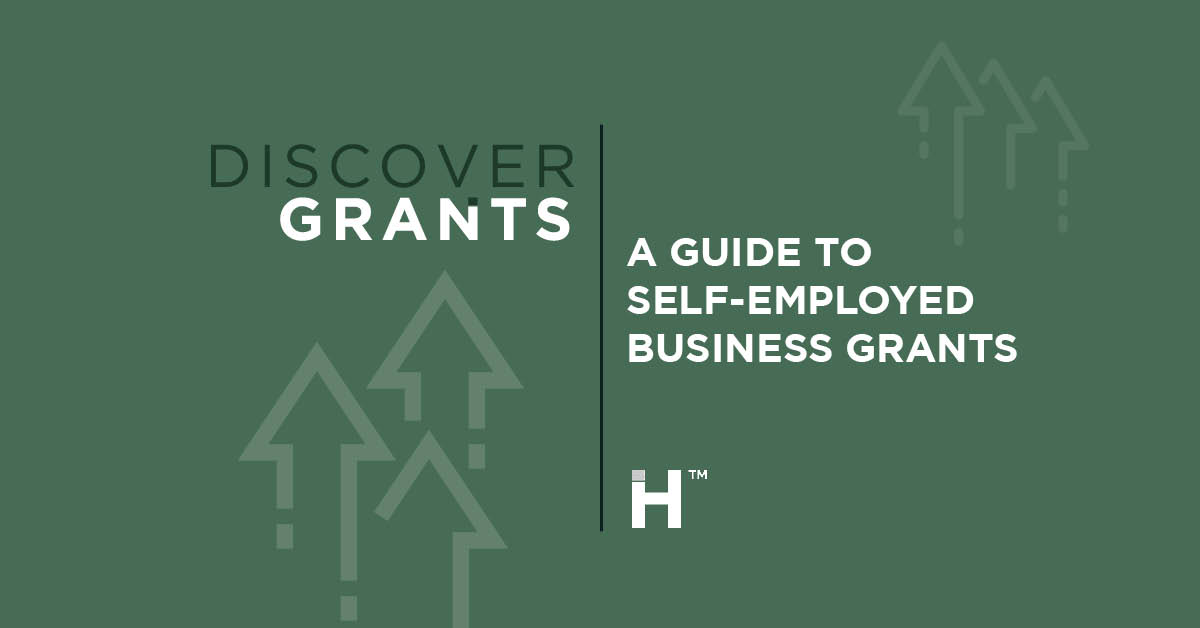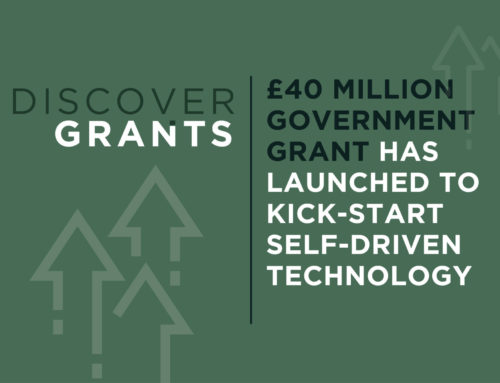Everything you need to know about self-employed business grants
Self-employed business grants can be a greatly appreciated helping hand if you’re a business owner. As a result of the COVID-19 pandemic, many self-employed business owners were struggling to keep their head above the water. However, there are some grants available to help ease the financial burden, boosting self-employed businesses.
The self-employed business grants available aren’t just for COVID-19 recovery. There are grants available for innovative businesses, young entrepreneurs or businesses that have a focus on heritage.
There are a wide variety of self-employed grants available across a multitude of business sectors. From self-employed start-up grants, self-employed business grants in Scotland and COVID-19 recovery grants for the self-employed, for instance.
Our self-employed grants guide includes various relevant self-employed business grants available throughout the UK. They include various opportunities that are available at the time of publication (June 2021) and how to apply.
Below are some self-employed business grants open year-round
National Lottery Grants for Heritage 2021 – 2022
Applications for the National Lottery Grants for Heritage are open year-round. These grants cater to self-employed individuals providing businesses owners with new insights. The scope, nature and overall purpose of your business will be taken into account.
Priority will be given to businesses wishing to better humanity causes in one way or another. The Heritage Enterprise is aimed at enterprising community and commercial organisations. It works in partnership with community organisations to help them rescue neglected historic buildings and sites. This is done to return them to viable use.
Due to the pandemic, they have revised their approach to what they will fund. This includes heritage projects that will:
- Support wellbeing
- Encourage job creation and skills development
- Boost the local economy
- Create better places to work, live and visit
- Improve the resilience of organisations working in heritage.
Each project will need to achieve their inclusion outcome of ‘a wider range of people will be involved in heritage’. They also expect all projects to demonstrate they are building long-term environmental sustainability into their plans.
There is no set amount of funds that this will provide, it’s based upon the specifics of your business and its needs. However, funding can range from £3,000 – £5 million. Through the Heritage Enterprise, they can fund:
- The purchase of a heritage asset in need of investment
- Essential conservation work, such as structural repairs to a historic building
- Repairs and adaptions to bring vacant and derelict buildings/sites back to commercially viable use
- Fit-out of a building to a basic level
- Activities to help people engage with heritage (including training in conservation, mentoring, learning, digital skills, etc)
- Support work to help you develop and manage your project (valuations, professional fees, specialist research, employing project staff)
- Finance costs.
Eligibility criteria
They fund applications from:
- Not-for-profit organisations
- Partnerships between commercial and not-for-profit organisations.
How to apply
You must first submit an Expression of Interest for a project enquiry form. Then they will notify you if you’ve been invited to make an application. Applications go through a two-round process. This allows you to apply at an early stage of planning. Then you can get an idea if you have a chance of getting a grant or not.
The project enquiry form will require the following information:
- Summary (name of your organisation project reference code, etc)
- Information about your organisation (contact details, address, etc)
- Project proposal
- Heritage focus
- What will the project do
- What programme outcomes you are hoping to achieve
- Why you want to do this project (the need and demand)
- Who will be involved in the project
- Timescales
- How much your project is likely to cost
- How much you are likely to ask from them
The process goes like this:
- Development phase application – you submit your development phase application with your delivery grant request.
- Development phase – if you’re successful, you enter your development phase and develop a more detailed delivery phase application. You’re able to use the development grant you may have requested at this stage.
- Delivery phase application – you submit your delivery phase application with your delivery grant request.
- Delivery phase – if you’re awarded a grant, you enter your delivery phase and start your project using your delivery grant.
It’s worth noting that it typically takes 8 months to process an application through the organisation. Therefore, it might not be the best option if you’re needing or wanting funding ASAP.
Innovate UK
Innovate UK provides grants to develop and realise the potential of new ideas. They offer a wide array of business grants in a variety of business sectors. Their grants for businesses include research and development (R&D), arts, design and media, science and engineering.
Your business/project should have a particular focus on innovation (hence the name). So, if your business develops new products, services and processes with a focus on innovation, it’s a great opportunity. It is also one of the many self-employed grants available.
What’s available?
The grants available from Innovate UK can range from £3,000 – £25 million.
Eligibility criteria
The eligibility criteria for the Innovate UK grant funding opportunities will vary from buyer to buyer. It will state the eligibility criteria on the funding opportunity page. It could vary from:
- Single applicants only
- UK registered micro or small business
- UK registered business or research and technology organisation
- Carry out your research and development project activity in the UK
- Intend to commercially exploit the project results from the UK
- Be or involve at least one SME.
How to apply
The application process is often split into the following three sections:
- Project details
This can include:
- Application details
- Equality, diversity and inclusion
- Research category
- Project summary
- Public description
- Application questions
The application questions will include:
- What is the business need, technological challenge or market opportunity behind your innovation?
- What approach will you take and where will the focus of the innovation be?
- Who is the project team and what are their roles?
- What does the market you are targeting look like?
- How are you going to grow your business and increase your productivity in the long term as a result of the project?
- What impact might this project have outside the project team?
- How will you manage the project effectively?
- What are the main risks of this project?
- What impact would an injection of public funding have on the businesses involved?
- How much will the project cost and how does it represent value for money for the team and the taxpayer?
- Finances
Each organisation in your project must complete their own:
- Project costs
- Organisation details
- Funding details.
New Enterprise Allowance
You may be eligible to receive a self-employed business start-up grant to start a new business if you are unemployed. The scheme is designed to help the long-term unemployed back to work by helping them set up their own business. Mentoring services and an allowance are available to start your own business through the New Enterprise Allowance from the government.
What’s available?
Through the New Enterprise Allowance, you’ll get a mentor who will give you advice and support. They will help you set up your business and start to trade. Once you’ve made a business plan that is approved by your mentor you:
- May get a weekly allowance worth up to £1,274 over 26 weeks
- Can apply for a loan to help with start-up costs.
Eligibility criteria
You may be eligible if you’re over 18 and either you:
- Get Income Support and you’re a lone parent, sick, or disabled
- Or your partner gets Universal Credit, Jobseeker’s Allowance or Employment and Support Allowance.
How to apply
Applicants for the New Enterprise Allowance can be made through JobcentrePlus.
Additional self-employed grants available
If any of those don’t appeal, there are other options. You can ask your local authority about the grants that are available in your region. There may be some funding available specific to your industry.
Local authorities have also been giving out coronavirus support packages to local business owners. These have included a range of relief funds to aid the financial burden of lost business due to the pandemic.
Soon to open
Self-Employed Income Support Scheme (SEISS) fifth round
A self-employed government grant for the UK is soon to open for a fifth round. The self-employed Income Support Scheme was developed in response to COVID-19. If you’re self-employed that has had your business affected by the pandemic, you can apply for a taxable grant.
The fifth grant covers May 2021 to September 2021. It will be open from late July 2021.
What’s available?
The amount of funding will be determined by how much your turnover has been reduced between April 2020 – 2021. The fifth grant will be worth:
- 80% of 3 months’ average trading profits, capped at £7,500, for those with a turnover reduced by 30% or more
- 30% of 3 months’ average trading profits, capped at £2,850, for those with a turnover reduced by less than 30%.
Eligibility criteria
To be eligible for the fifth grant, you must be a self-employed individual or a member of a partnership.
- You must earn at least 50% of your total turnover from self-employment
- Your average trading profit must be £50,000 a year or less.
You must have traded in the tax years:
- 2019 – 2020 and submitted your tax return on or before 2nd March 2021
- 2020 – 2021.
You must either:
- Be currently trading but impacted by reduced demand due to coronavirus
- Have been trading but are temporarily unable to do so due to coronavirus.
How to apply
If you’re eligible based on your tax returns, HMRC will contact you in mid-July 2021. You will receive a date you can make your claim from. To make a claim you will need the following:
- Self Assessment Unique Taxpayer Reference (UTR)
- National Insurance number
- Government Gateway user ID and password
- UK bank details including account number, sort code, name on the account and address linked to the account.
Young Innovators Awards 2021/22
This is a great opportunity for young people to apply for an award to make their business idea a reality. It could be considered a self-employed start-up grant as this grant will help you set up a business.
The aim of this funding opportunity is to help young people with great business ideas. Those who have the potential to become future leaders in innovation. Your project/business must:
- Address a problem
- Be innovative
- Be significantly better than what’s currently on offer including from existing businesses.
What’s available?
- A grant for £5,000
- A living allowance in the form of a grant (2 days/15 hours a week throughout the award period)
- Tailored business support (media and communications, branding, business strategy planning and financial planning, etc).
It’s worth noting that the opening date is: 14th June 2021 at 09:30 UK time
The closing date is: 28th July 2021 at 11:00 UK time
Eligibility criteria
This self-employment start-up grant is open to sole applicants only. To be eligible, you must be:
- A UK resident with the right to work in the UK or will have the right to work in the UK for the duration of the award
- Aged 18 – 30 on the date of the competition closing
- Able to commit on average two days/15 hours per week to work on the award and attend two bootcamp sessions.
How to apply
You must create an account on the Innovation Funding Service.
As part of your application, you must:
- Pitch your idea in a short video up to 3 minutes long. It must be uploaded to either Vimeo or YouTube.
The application is split into three sections:
- Project details
- Application details (project/business title, start date and duration)
- Subsidy basis
- Equality, diversity and inclusion
- Project summary
- Application questions, including your video pitch
- Special Drawing Rights declaration
- Registered business
- Time commitment
- Role model commitment
- Your age
- Date of birth
- Right to work
- Where will you be working?
- Other support
- Employment status
- Student status
- Young Innovators Awards webinars
- Further support
- Value proposition (500 words)
- Impact (800 words)
- Game plan (500 words)
- Risks (300 words)
- Video pitch.
- Finances
- Only enter £5,000 under labour costs.
So, those are just a few of the self-employed business grants available in the UK. Once you’ve found a business grant that’s perfect for your business you can start progressing with an application.
Common mistakes when applying for self-employed government grants in the UK
-
Trying to make your business fit an opportunity
One of the biggest mistakes you can do is trying to make your business fit a funding opportunity. You shouldn’t try and edit your project or business to suit a funding opportunity. You should try and find a funder that matches your aims and objectives. This will increase your chance of success for your self-employed grant application.
To help find the right opportunity for you, you could use the SWOT analysis. You should assess the:
- Strengths
- Weaknesses
- Opportunities
- Threats
-
Lack of evidence and rambling responses
Your self-employed grant application should avoid long incoherent, rambling responses. Sending off an application that is way over the word count will not put you in the funder’s good books. You need to persuade the funder that they should give you their money.
It will be very obvious to a funder if an application is merely after the money. These will be rejected in the first instance. You must demonstrate that there is a need for your business/project in the long term. Providing a sustainable long-term solution to a problem or a need is preferred.
-
Submitting your application in the wrong format
It is vital that you pay attention to the grant documents. These will detail all the important information you need to submit your application. It is important that you adhere to any formatting that is noted here, and funders take this very seriously. They state they only accept applications in Arial font size 12. In this case, writing your application in Comic Sans font size 10 won’t do and you might be rejected on this alone.
If a funder is wanting submissions in a video format submitted via email you should submit a video via email. If they don’t specify this type of information, ask clarification questions. A funder will be understanding. Ultimately, they want to award their funding to the best businesses/projects out there.
If you need a helping hand, you should consider outsourcing your self-employed grant application to a Grant Writing Consultant. They can help increase your chances of success. They’re well versed in writing applications and know how to best convey your message to a funder.
3 Tips for success with your self-employed grant application
-
Have a full-proof business plan
Having a full-proof business plan is one of the most essential aspects of your grant application. In order to qualify for some grants, you will need to demonstrate that you fulfil certain criteria. If you are a new business, you may need to create one in order to apply for funding.
This may involve providing a statement of your finances over a certain period (often 2-3 years). If you’ve already started trading, you’ll likely need to provide examples of your business’s position and balance sheet. If you’ve just started, you may be required to provide projections of your profits and losses in the coming years, for instance.
-
Focus on what the grant is going to be spent on
Funding is usually awarded for something specific or such as a project or a business with certain objectives. You should clearly explain what the money awarded will be used on. When writing your bid for funding you should detail how this will help your business long-term. Moreover, you should detail how this will enable sustainable outcomes and help grow your business and benefit others.
You should realistically evaluate running costs. Don’t take for more money than you realistically need. Funders want you to be open and honest when it comes to money. They also want to know that their money is in good hands. You should demonstrate your capabilities in managing cash flow. As a result, this will give them confidence that you are trustworthy.
-
Start planning early
It should be no surprise that a successful grant application is all in the planning. After all, you need to manage your time in order to be successful. Therefore, a great tip is to work backwards from the submission deadline. However, this may be difficult if there is a limited amount of funding when it’s first come, first served.
Doing the footwork early on can help you get a step up when writing your application. For example, do some research on the funders. What’s their history and what sort of businesses do they typically support? Keep your business finances and business plan in check. Being organised and having a bank of responses can help you be prepared for any question.
If you’re unsuccessful this time around, don’t give up. Ask for feedback and try again. Granted applications can be fairly time-consuming, but your hard work will pay off eventually.
Need help securing your next bid for funding?
Our Grant Writing Service is for businesses who want to start applying for grants, but don’t know where to begin. Likewise, if you don’t have the resources or the time in-house to write a winning grant – we can help.
Our Grant Writing Consultants have over 60 years of experience in bidding for funding and grants. Whether it’s start-up business grants, cash grants for small businesses, council business grants, or grants for charities in the UK. Moreover, they can take care of the whole thing for you – they’ll even submit it on your behalf.
Get in touch to find out how we can help your business grow!
Our Grant Tracker service is now available and hosts all the latest grant opportunities in the UK from 1,500 data points. Opportunities are manually tracked, enabling for accurate keyword labelling, optimising your search for the perfect grant. This can help you optimize your search for grants for businesses.
Sign up today!





